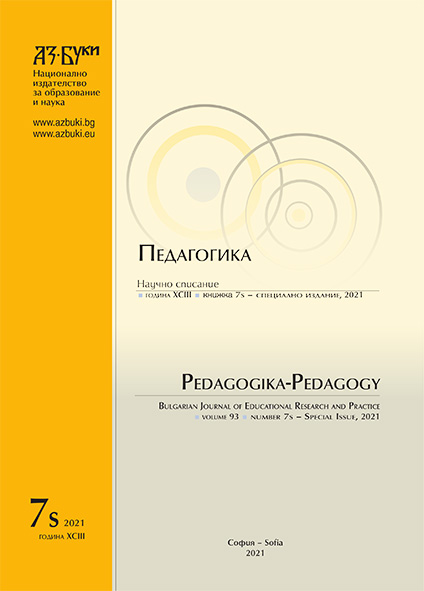Traditional vs Online Education In the Maritime Training System Under Covid-19 Pandemic: Comparative Analysis
Traditional vs Online Education In the Maritime Training System Under Covid-19 Pandemic: Comparative Analysis
Author(s): Olena Bezlutska, AIona LeshchenkoSubject(s): Social Sciences, Education, Vocational Education, Adult Education, Higher Education , State/Government and Education, Inclusive Education / Inclusion, Distance learning / e-learning
Published by: Национално издателство за образование и наука „Аз-буки“
Keywords: online education; blended education; LMS MOODLE electronic platform; COVID-19; digitalization of education
Summary/Abstract: The correlation between traditional and MOODLE learning management system usage in the educational process of the maritime higher education institutions has been studied in the article. The need to find new digital tools was due to the current state of the educational system, which should become open to new trends, and exacerbated by the conditions of the COVID-19 pandemic. Comparative analysis was chosen as the main research tool, which made it possible to conduct a comparative analysis of online and offline modes of implementation of the educational process in higher maritime educational institutions, as well as to determine the main advantages and disadvantages of the LMS MOODLE electronic platform. Her collection of data was carried out using a Google questionnaire. The respondents had to answer 9 questions. The survey was conducted among students of the Maritime Academy of two age categories – from 18 to 30 years old and from 31 to 45 years old. Analysis of the questionnaire data allows us to conclude that students of the first age category have more developed digital competencies (87%) and easily switched to distance learning using the LMS MOODLE platform; however, in the second age category, more than 60% had no difficulties with online learning. In general, for applicants for higher education, working on the LMS MOODLE electronic platform has its advantages and may be one of the methodological tools for the implementation of the educational process. For applicants for higher maritime education, it is convenient both in terms of timing and availability for education. The weak side of the platform is the lack of opportunity for teachers to independently organize (without the technical support of the platform administrator) video lessons on LMS MOODLE in real time, which is one of the priority tasks for improving the educational process online. The next step in the development of online learning opportunities is to create opportunities for teachers to independently create online rooms for lectures and practical exercises in real time, as well as expand the possibilities for connecting cloud simulators to practice the practical skills and abilities of students of higher maritime educational institutions.
Journal: Педагогика
- Issue Year: 93/2021
- Issue No: 7s
- Page Range: 86-95
- Page Count: 9
- Language: English
- Content File-PDF

